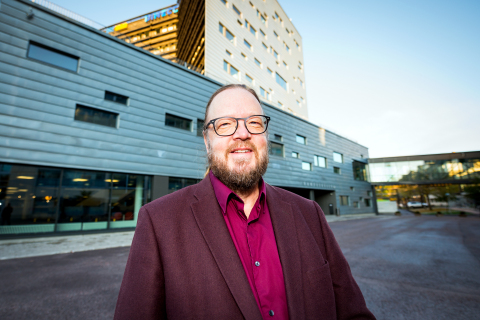Professor Jari Nurmi, Tampere University
tel. +358 40 506 4460
jari.nurmi@tuni.fi

Reduced Data Accuracy Helps Save Energy – Tampere University, Finland, Is Coordinating a Project That Trains Young Scientists From Around the World to Develop Solutions
- TAMPERE, Finland - Saturday, 13. November 2021
- AETOSWire
Computers are using more and more energy. APROPOS – an international EU-funded project coordinated by Tampere University, Finland – aims to improve the energy efficiency of global data usage up to 50-fold by reducing data accuracy. The young researchers involved in the project come from all around the world to work in Finland, Sweden, the Netherlands, Austria, Italy, Spain, Switzerland, France, and the UK.
(BUSINESS WIRE)-- It is estimated that by 2040, computers will need more electricity than the world’s energy resources can generate. The Approximate Computing for Power and Energy Optimisation (APROPOS) project will train 15 junior researchers around Europe to tackle the challenges of future-embedded and high-performance computing energy efficiency by using disruptive methodologies.
The energy consumption of mobile broadband networks is comparable to that of data centres. The Internet of Things paradigm will soon connect up to 50 billion devices through wireless networks. The APROPOS project aims at decreasing energy consumption in both distributed computing and communications for cloud-based cyber-physical systems.
“Luckily, in many parts of global data acquisition, transfer, computation, and storage systems, it’s possible to reduce accuracy to allow reduced energy and time consumption. By introducing accuracy to design optimisation, energy efficiency can be improved even up to 50-fold,” says Professor Jari Nurmi from the Electrical Engineering Unit of Tampere University.
Nurmi points out that, for example, numerous sensors measure noisy or inexact inputs, and the algorithms processing the acquired signals can be stochastic. Sensor swarms measuring natural environments produce a lot of noisy and inexact data that can be transferred and processed with less accuracy without losing the essential trends of the phenomena observed.
”The applications using data may not need completely correct results; acceptable accuracy may be sufficient. This means that the system can be resilient against random errors and, for example, a coarse classification may be enough for a data mining system.”
New solutions needed to tackle increasing energy consumption
The overall energy consumption of computing and communication systems is rapidly growing, despite the recent advances in semiconductor technology and energy-aware system design. The APROPOS project will train fifteen research fellows in a multisectoral, international environment to form the basis for enhanced features in products and energy-aware system design.
“The early-stage researchers of APROPOS will be trained in both entrepreneurial and academic directions. Thus, they will be able to develop the commercial potential of their research and come up with innovative product and service ideas,” Nurmi adds.
APROPOS is a four-year project funded by the European Union’s Horizon 2020 Marie Sklodowska Curie Innovative Training Networks. It is coordinated by Tampere University, Finland. Many of the young researchers are coming from outside the EU to work in Finland, Sweden, the Netherlands, Austria, Italy, Spain, Switzerland, France, and the UK.
Read more at http://www.apropos-itn.eu
Tampere University
The multidisciplinary Tampere University is the second largest university in Finland. The spearheads of our research and learning are technology, health and society. The University is committed to addressing the greatest challenges that are facing our society and creating new opportunities. Almost all the internationally recognised fields of study are represented at the University. Together, Tampere University and Tampere University of Applied Sciences comprise the Tampere Universities community made up of more than 30,000 students and close to 5,000 employees. www.tuni.fi/en
View source version on businesswire.com: https://www.businesswire.com/news/home/20211111005657/en/
